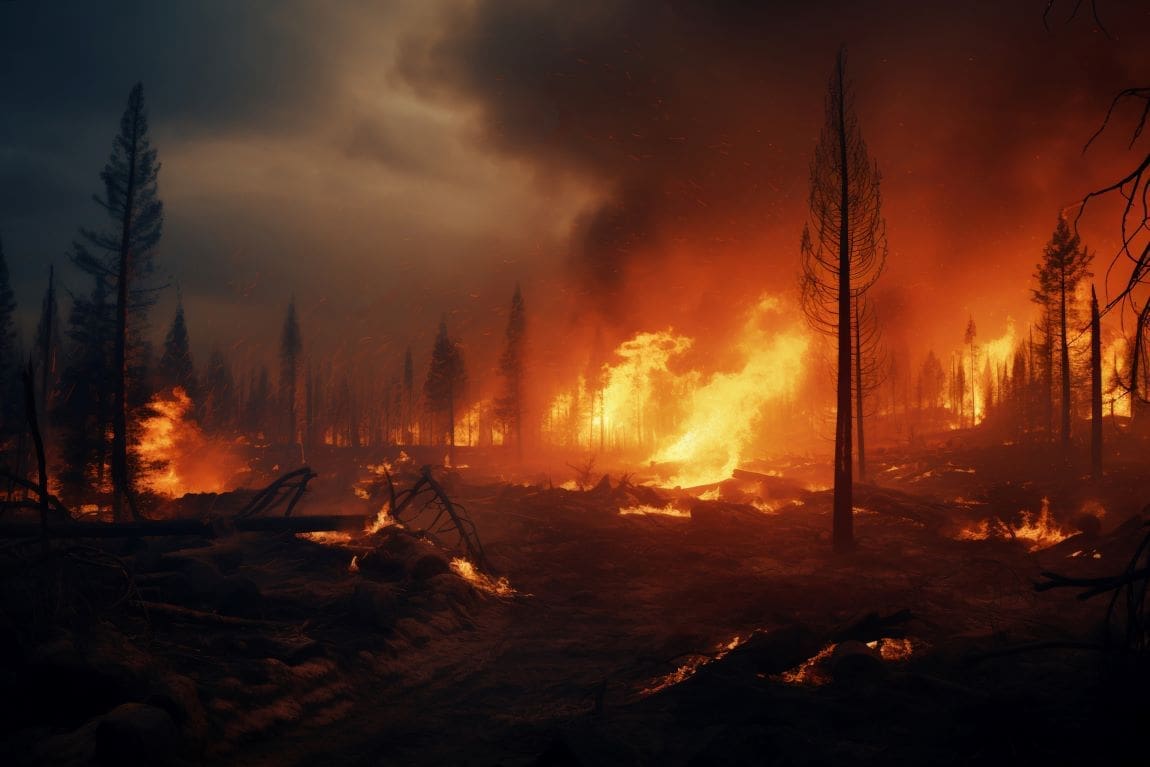Extreme bushfires have more than doubled in frequency and intensity over the past two decades, according to a global study from the University of Tasmania.
Published in the journal Nature Ecology and Evolution, the research reveals that six of the past seven years have been among the most extreme on record for wildfires.
Dr Calum Cunningham, Postdoctoral Research Fellow at the University of Tasmania and lead author of the study, said the findings are alarming.
“This study provides concrete evidence of a worrying trend. The intensity and frequency of these bushfires are increasing at an alarming rate, directly linked to the escalating effects of climate change.”
Using 21 years of satellite data, the research team, including Professor David Bowman and Dr Grant Williamson, identified intense bushfire events by measuring the combined heat energy from fires each day.
The study shows that not only have the number of extreme bushfires more than doubled between 2003 and 2023, but the average intensity of the 20 most extreme bushfires each year has more than doubled during this time.
“The impact of these extreme events is devastating, not only for natural ecosystems but also for human populations. These fires release significant carbon emissions, threatening to create a vicious cycle that further accelerates global warming,” Dr Cunningham said.
“Extreme bushfires result in catastrophic ecological damage, significant carbon emissions, and severe impacts on human health and safety. For instance, Australia’s ‘Black Summer’ bushfires of 2019-2020 were unprecedented in their scale and intensity, leading to massive ecological destruction and substantial carbon emissions.”
The extreme bushfires are increasing fastest in the boreal and temperate conifer forests of North America and Russia. Hotspots of intense bushfires were also recorded in Australia, southern Africa, Mediterranean Europe, and South America.
The study underscores the urgent need for adaptive measures to mitigate the growing threat of extreme wildfires.
With global temperatures on the rise, the conditions that lead to these extreme bushfires are expected to worsen. As a result of that, the researchers are calling for robust climate action and improved bushfire management strategies.
“Immediate global action is necessary to tackle the root causes of climate change. We must also develop more effective wildfire management practices that are tailored to the specific needs of each local area,” Dr Cunningham said.
“Our findings highlight the critical need for both mitigation and adaptation strategies to protect our planet and its inhabitants.”
More information: Calum X. Cunningham, Grant J. Williamson & David M. J. S. Bowman, ‘Increasing frequency and intensity of the most extreme wildfires on Earth’, Nature Ecology & Evolution (2024); DOI: 10.1038/s41559-024-02452-2. University of Tasmania Press Release. Featured image credit: Freepik (AI Gen)




